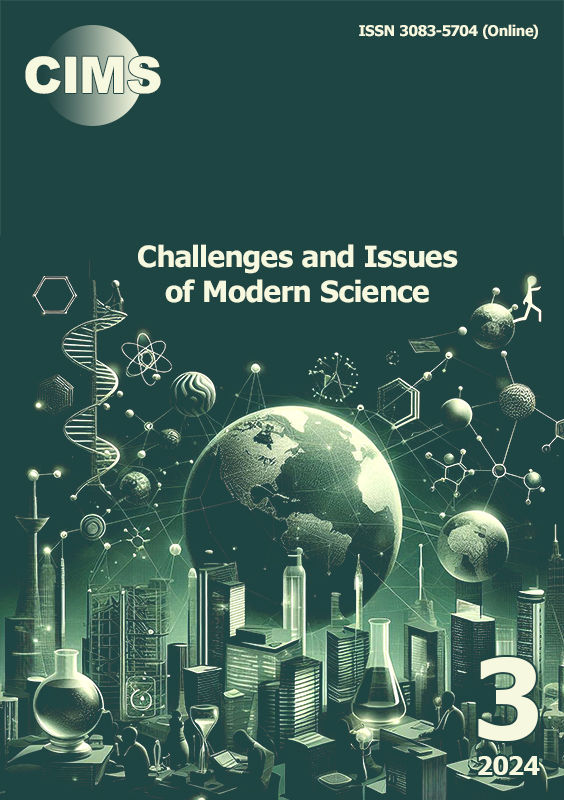Leadership models in managing cross-cultural teams
Keywords:
cross-cultural leadership, leadership models, global teams, adaptability, communication, cultural differences, managementAbstract
Purpose. This article examines leadership models and strategies for managing cross-cultural teams. It focuses on leaders' behavioural priorities, such as task orientation, relationships, and shared leadership, and how cultural differences impact the effectiveness of formal and informal leaders. The need for an integrative leadership approach is emphasized in the context of globalisation and cross-cultural teams. Design / Method / Approach. A qualitative method is used, based on analysis of existing literature on leadership in project team management. Findings. Effective communication between leaders and team members is a key factor in project success. Overcoming linguistic barriers, understanding cultural differences, and coordinating non-verbal communication are essential for high-quality information exchange and understanding in cross-cultural teams. Theoretical Implications. This research contributes to understanding leadership in cross-cultural team management. Intercultural communication is crucial for building strong relationships, fostering trust, and reducing conflicts, contributing to successful goal achievement. Practical Implications. The study offers practical strategies for leaders, including developing intercultural sensitivity through training on cultural differences, and adopting empathy by understanding subordinates' emotional states. Adapting communication styles and using technology to enhance interaction across locations are also recommended. Originality / Value. This paper provides a comprehensive analysis of cross-cultural management’s impact on leadership styles and strategies, offering both academic and practical insights for improving cross-cultural team management. Research Limitations / Future Research. The study is limited by its qualitative nature and focus on specific industries. Future research could include quantitative analysis and examine leadership in various cultural and organisational contexts. Paper Type. Review paper.
Downloads
References
Batırlık, S. N., Gencer, Y. G., & Akkucuk, U. (2022). Global Virtual Team Leadership Scale (GVTLS) Development in Multinational Companies. Sustainability, 14(2), 1038. https://doi.org/10.3390/su14021038
Den Hartog, D. N., & De Hoogh, A. H. B. (2024). Cross-Cultural Leadership: What We Know, What We Need to Know, and Where We Need to Go. Annual Review of Organizational Psychology and Organizational Behavior, 11(1), 535–566. https://doi.org/10.1146/annurev-orgpsych-110721-033711
Gutterman, A. (2023). Cross-Cultural Leadership Studies. SSRN Electronic Journal. https://doi.org/10.2139/ssrn.4560467
Pearce, C., & Conger, J. (2003). Shared Leadership: Reframing the Hows and Whys of Leadership. SAGE Publications, Inc. https://doi.org/10.4135/9781452229539
Zander, L. (2024). Interpersonal Leadership Across Cultures: A Historical Exposé and a Research Agenda. In International Business Research: Culture, Work, Employment, and Leadership (pp. 38-61). Routledge. https://doi.org/10.4324/9781003459903-5
Брусєнцева, О. (2021). Управління мультикультурними командами в проєктах. In Економічні, соціальні та інформаційні механізми формування та вдосконалення системи управління проєктами (pp. 209–225). ДЗВО «Університет менеджменту освіти». http://surl.li/rgyqwc
Видря, М. А., & Нямещук, Г. В. (2022). Асиметрії високотехнологічного розвитку країн. In Глобальна безпека та асиметричність світового господарства в умовах нестабільного розвитку економічних систем (pp. 53–56). ЦНТУ. https://dspace.kntu.kr.ua/handle/123456789/12346
Нямещук, Г. В. (2022). Еволюція цифрового суспільства: перехід до meta-всесвіту. In Економіко-правові та соціально-технічні напрями еволюції цифрового суспільства (Vol. 2, pp. 222–224). Університет митної справи та фінансів. http://surl.li/lfadkw
Скочинець, А. А., Мандибура, Р. Є., Петрович, В. П., Садонцев, Д. У., & Процик, Н. О. (2023). Шляхи подолання крос-культурних комунікативних бар’єрів у мультикультурній корпорації. Scientific notes of Lviv University of Business and Law, (38), 230-236. https://nzlubp.org.ua/index.php/journal/article/view/1267
Downloads
Published
Issue
Section
License
Copyright (c) 2024 Sofiia Salamanina, Hanna Niameshchuk (Author)

This work is licensed under a Creative Commons Attribution 4.0 International License.
All articles published in the journal Challenges and Issues of Modern Science are licensed under the Creative Commons Attribution 4.0 International (CC BY) license. This means that you are free to:
- Share, copy, and redistribute the article in any medium or format
- Adapt, remix, transform, and build upon the article
as long as you provide appropriate credit to the original work, include the authors' names, article title, journal name, and indicate that the work is licensed under CC BY. Any use of the material should not imply endorsement by the authors or the journal.



















